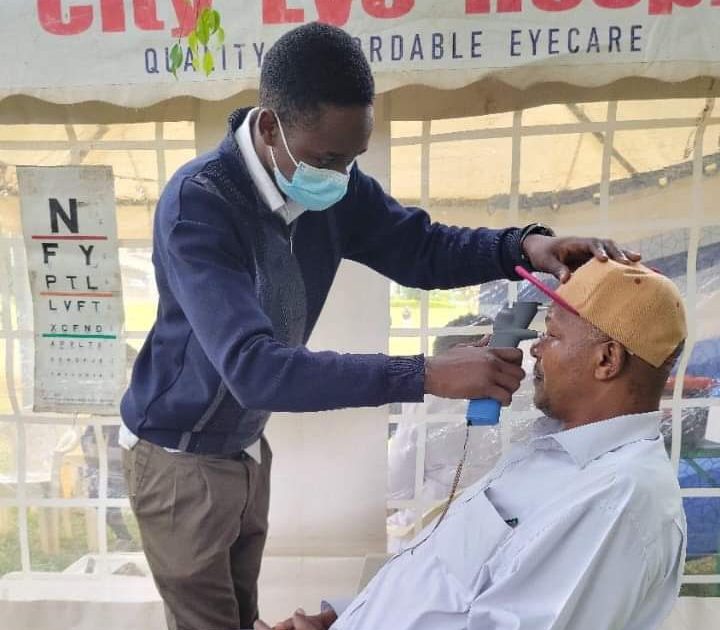A Nyeri-based ophthalmologist has rooted for routine eye checkups as a safeguard against Glaucoma.
According to Dr. Jean Junior, an ophthalmologist at City Eye Hospital in Nyeri, there is a critical need for continuous public sensitisation on the importance of early detection of the disease, which poses a significant risk of causing irreversible blindness if left untreated.
Dr. Junior says many patients only realised that they were suffering from the condition when they were on the verge of losing their sight or after they had lost their vision, underscoring the importance of routine eye examinations.
“The biggest challenge we face is late presentations by patients. Many of them seek medical care when they have already lost their vision, and they come expecting the doctor will help them recover their sight. The other challenge is that some of the patients ignore early symptoms like blurred vision and think it is normal; hence, they don’t seek treatment,” stated Dr. Junior.
The American Academy of Ophthalmology defines Glaucoma as a chronic eye disease that damages the optic nerve, which connects the eyes to the brain. It is usually caused by a buildup of fluid in the front of the eye, which increases pressure inside the eye.
Often referred to as the ‘silent thief of sight’, Glaucoma is the second leading cause of vision loss globally. As of 2022, the disease was responsible for near or distance vision impairment in 7.7 million people globally.
In Kenya, the National Guidelines for Management of Glaucoma estimate the prevalence rate of disease to be at 4.3 per cent of adults above the age of 50 years.
Speaking to KNA at the sidelines of a three-day outreach programme, Dr. Junior also noted that many Kenyans were not aware of the factors that predisposed them to the disease regarded as one of the leading causes of blindness among people who are over 60 years.
“There are three factors that one should be aware of. One of them is family history, meaning if there is someone in your family with glaucoma or who had it, there is a high chance you might have it. The second one is that the more you age, the more you are at risk of getting glaucoma, usually if you are at the age of 50 and above. The third one is certain health conditions like diabetes, or using certain medications like steroids or having an eye injury exposes you to the condition. But there are others who are born with congenital glaucoma,” he stated.
Dr. Junior is however quick to highlight different management options available for patients who are diagnosed with the disease.
He also recommends an eye checkup at least once a year to increase the chances of early detection and management of the disease to ensure that the patient does not lose their sight to the disease.
“Once one is diagnosed with glaucoma, there are different ways of managing it. One of the most important things to note is that once you lose vision from glaucoma, it is irreversible, meaning when you are treating someone who has already lost vision, the main aim is not to regain the vision but to try and prevent it from getting worse. We also give eye drops, which help maintain eye pressure at optimum levels. You may perform laser surgery to try and create an opening inside the eye and eye surgery to create another pathway to reduce the eye pressure,” he explains.
By Njoki Nderitu





